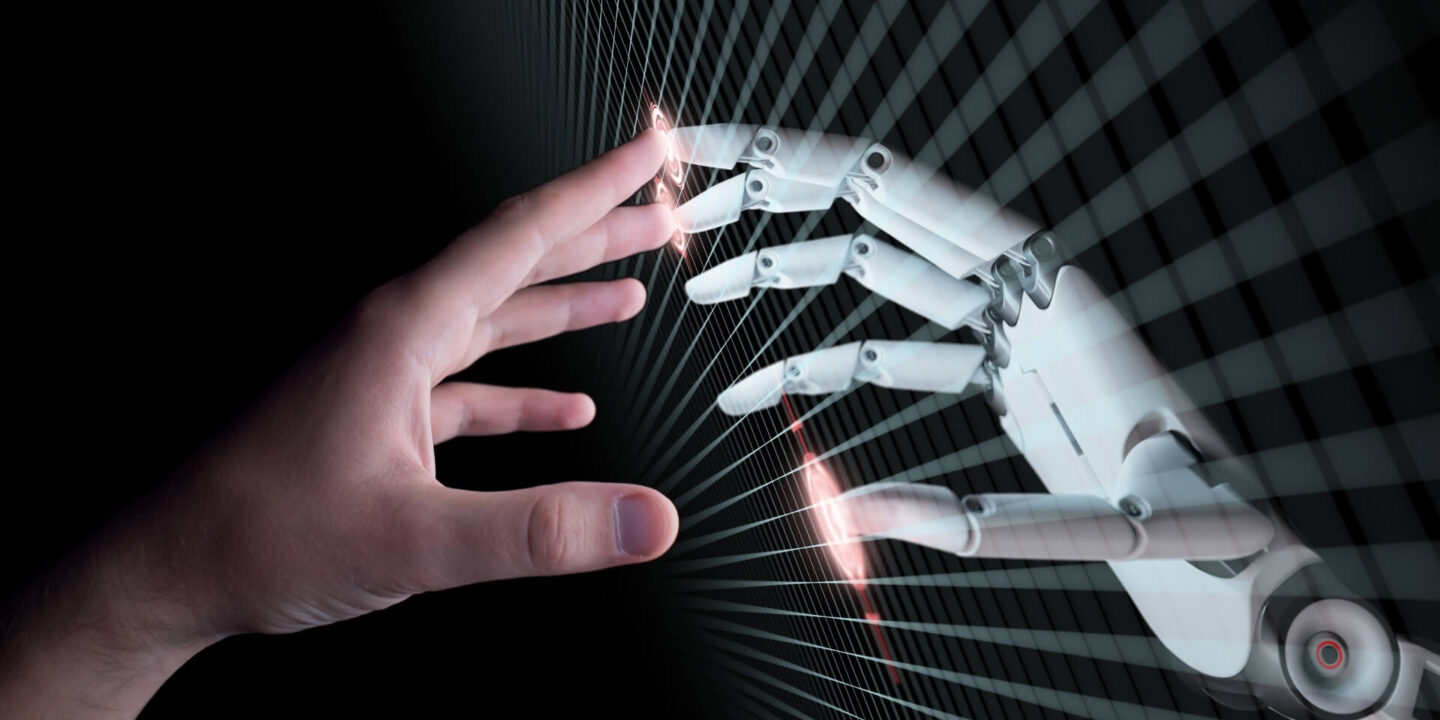
Transforming the Future
In recent years, both Virtual Reality (VR) and Artificial Intelligence (AI) have emerged as groundbreaking technologies, reshaping various industries and creating new opportunities for innovation. Although they operate in different domains, the convergence of VR and AI leads to unprecedented advancements and immersive experiences.
Virtual Reality (VR) Technology
What is VR? Virtual Reality (VR) is a simulated experience that can be similar to or completely different from the real world. It typically involves using VR headsets and controllers to create immersive environments where users can interact with 3D worlds.
Applications of VR:
- Gaming and Entertainment:
- VR offers an immersive gaming experience, making players feel part of the game world.
- VR is used for virtual concerts, interactive movies, and theme park attractions in entertainment.
- Education and Training:
- VR provides interactive and engaging educational experiences like virtual field trips and historical recreations.
- In professional training, VR is used for simulations in medicine, aviation, and the military, allowing for risk-free practice.
- Healthcare:
- VR is utilized in pain management, physical therapy, and rehabilitation.
- It also aids in medical training, enabling students to practice surgeries and procedures in a virtual environment.
- Real Estate:
- VR allows potential buyers to take virtual tours of properties, offering a realistic view without needing to be physically present.
- Workplace Collaboration:
- VR creates virtual workspaces where teams can collaborate from different locations, enhancing remote work productivity.
Benefits of VR:
- Immersive Experiences: Provides a highly engaging and realistic experience for users.
- Enhanced Learning: Facilitates interactive and practical learning experiences.
- Improved Training: Offers a safe environment for training in high-risk professions.
- Increased Accessibility: Makes inaccessible locations or scenarios available virtually.
Artificial Intelligence (AI) Technology
What is AI? Artificial Intelligence (AI) involves the development of computer systems that can perform tasks typically requiring human intelligence. These tasks include learning, reasoning, problem-solving, perception, and language understanding.
Applications of AI:
- Healthcare:
- AI assists in diagnostics, predicting patient outcomes, and personalized treatment plans.
- AI-powered robots perform surgeries with precision and assist in patient care.
- Finance:
- AI algorithms are used for fraud detection, trading strategies, and risk management.
- Chatbots and virtual assistants provide customer service and financial advice.
- Retail:
- AI enhances customer experiences through personalized recommendations and efficient supply chain management.
- AI-driven analytics help retailers understand consumer behaviour and optimize inventory.
- Automotive:
- AI is at the core of autonomous vehicles, enabling self-driving capabilities.
- AI systems improve navigation, traffic management, and driver assistance features.
- Marketing:
- AI analyzes consumer data to create targeted marketing campaigns.
- It also helps create content, manage social media, and segment customers.
- Smart Homes:
- AI powers smart home devices like thermostats, security systems, and voice assistants (e.g., Amazon Alexa and Google Assistant).
Benefits of AI:
- Efficiency and Productivity: Automates repetitive tasks, allowing humans to focus on higher-value activities.
- Data-Driven Insights: Analyzes vast amounts of data to provide actionable insights and informed decision-making.
- Personalization: Enhances user experiences through personalized services and recommendations.
- Innovation: Drives technological advancements and opens new avenues for research and development.
The Convergence of VR and AI
The integration of VR and AI technologies is leading to innovative solutions that combine the strengths of both:
- Enhanced Immersive Experiences:
- AI algorithms can adapt VR environments in real-time based on user interactions, creating personalized and dynamic experiences.
- Intelligent Virtual Assistants:
- AI-powered avatars in VR environments can provide real-time assistance, training, and customer service.
- Data Collection and Analysis:
- AI can analyze data collected from VR interactions to improve user experiences, product designs, and training programs.
- Predictive Modeling:
- AI can predict user behaviour and outcomes in VR simulations, enhancing training and decision-making processes.
Conclusion
Virtual Reality (VR) and Artificial Intelligence (AI) are transformative technologies with wide-ranging industry applications. While VR provides immersive and interactive experiences, AI offers intelligent, data-driven solutions. Together, they drive innovation, enhance user experiences, and create new opportunities for growth and development in numerous fields. Embracing these technologies can lead to significant advancements and competitive advantages in today’s rapidly evolving digital landscape.

Review Title
There are many variations of passages of Lorem Ipsum available, but the majority have suffered alteration in some form, by injected humour, or randomised words which don't look even slightly believable. If you are going to use a passage of Lorem Ipsum, you need to be sure there isn't anything embarrassing hidden in the middle of text.If you use this site regularly and would like to help keep the site on the Internet, please consider donating a small sum to help pay for the hosting and bandwidth bill. There is no minimum donation, any sum is appreciated - click here to donate using PayPal. Thank you for your support.
Pros
- Pors Item One
- Pors Item Two
- Pors Item Three
- Pors Item Four
- Pors Item Five
Cons
- Cons Item One
- Cons Item Two
- Cons Item Three
- Cons Item Four
- Cons Item Five
















